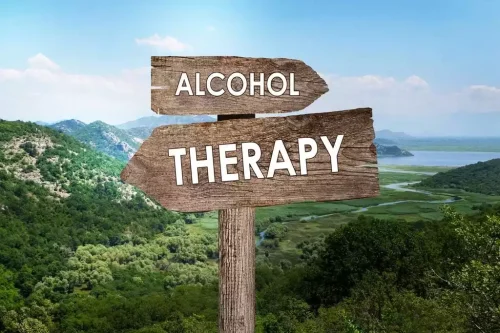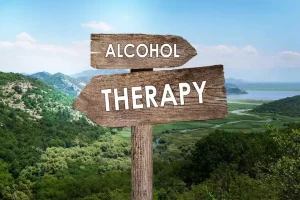
Find a quiet and addiction meditation kundalini comfortable space where you can meditate without distractions. Uncover the transformative power of EET meditation as we delve into its technique and the myriad benefits it offers. Discover the key distinctions between self-confidence and self-esteem and learn how to cultivate both for a healthier sense of self-worth and personal growth. Aura Health is a community of hundreds of top coaches, therapists, and storytellers worldwide. We are here to provide the world’s most extensive, personalized collection of mental wellness content & services.
- For individuals in addiction recovery, mindful eating can be a potent resource to foster a more positive relationship with their bodies and food.
- Different types of meditation are beneficial to those in addiction recovery.
- By understanding the science behind addiction and recognizing its psychological impact, individuals can embark on a journey of healing and transformation.
- The goal is to cultivate a state of present moment awareness and non-judgmental acceptance of one’s thoughts and experiences.
Meditation for Addiction: Definition, Types, Application, Benefits, and Efficacy
Meditation is highly effective for addiction recovery, serving as a powerful complementary therapy for treating substance use disorders. Studies show that people who meditate regularly during recovery experience reduced cravings and improved treatment outcomes, making it an increasingly valued tool in addiction treatment programs. Meditation can be a transformative practice for individuals in addiction recovery. Integrating meditation into their journey can support their recovery, offering benefits such as mindfulness based stress Sober living home reduction, emotional regulation, and greater self-awareness. Using meditation in combination with other addiction treatments such as therapy and medication can offer several benefits. For individuals in addiction recovery, medication can be used to manage withdrawal symptoms and reduce cravings.

How It Can Improve Recovery Outcomes

Those struggling with addiction often experience feelings of shame, guilt, and low self-esteem. They may also grapple with co-occurring mental health disorders such as anxiety and depression, which further complicate their recovery journey. One of its primary benefits is in managing cravings and withdrawal symptoms, common hurdles in the journey toward sobriety.

How Can Individuals Incorporate Meditation Into Their Daily Addiction Recovery Routine?
In mantra meditation, you would select a particular word or phrase and repeat it. You can repeat the mantra loudly or quietly, and the repetition allows you to focus on the environment around you. Practicing meditation can help people gain more control over their emotions, thoughts, and reactions. When you meditate, you turn down your sympathetic nervous system and turn up your parasympathetic nervous system. This is the second part of your autonomic nervous system, which generally takes over once a danger has passed. It quiets your body and returns your heart rate, blood pressure, and breathing to normal.
- This means that insurance plans sold through the ACA marketplace must cover addiction treatment services, including detoxification, inpatient and outpatient treatment, and aftercare programs.
- The associations between purpose in life and happiness (H8.1), anxiety (H8.2), and depression (H8.3) may be accounted for, to some extent, by behavioral activation.
- Fostering a nonjudgmental, compassionate approach toward yourself is essential to maintain sobriety.
- Mantra meditation is a type of meditation in which you repeat a word, affirmation, or positive statement to yourself repeatedly throughout the meditation.
How Meditation Therapy Can Help With Addiction
- This, in turn, helps reduce the risk of relapse and promotes long-term recovery.
- Meditation helps individuals to observe their thoughts and feelings without getting caught up in them.
- These comprehensive benefits span across physiological, psychological, and emotional dimensions, creating a robust foundation for sustained recovery and overall wellness.
- Initiate with a brief session, like five or ten minutes, and then progressively extend the duration as you become more acclimated to the activity.
By fostering mindfulness, meditation helps individuals observe their cravings without acting on them, effectively reducing their intensity and frequency. Addiction is a complex and multifaceted challenge, deeply affecting individuals and https://ecosoberhouse.com/ their loved ones. Navigating the path to recovery often requires a combination of strategies. Below, we’ll explore the transformative role of meditation in overcoming addiction.

Physical & Other Health Benefits
With meditation, you can build inner strength that will help you navigate cravings, become more resilient, and create a new life in sobriety. This could be a specific time of day or after a daily occurrence, such as after dinner or before bed. Meditation also helps to expand a person’s perspective, allowing them to assess their thoughts and feelings from multiple angles. This can help you “get out of your head” and view your experiences through a more well-rounded and empathetic lens.
- Commit to a daily practice, even if it is just five or 10 minutes at first.
- The practice is often done sitting or lying down, and individuals are encouraged to focus on their breath or a specific object.
- It should not be used in place of the advice of your physician or other qualified healthcare providers.
- They found that purpose in life actually mediated the association between mindfulness and depression.